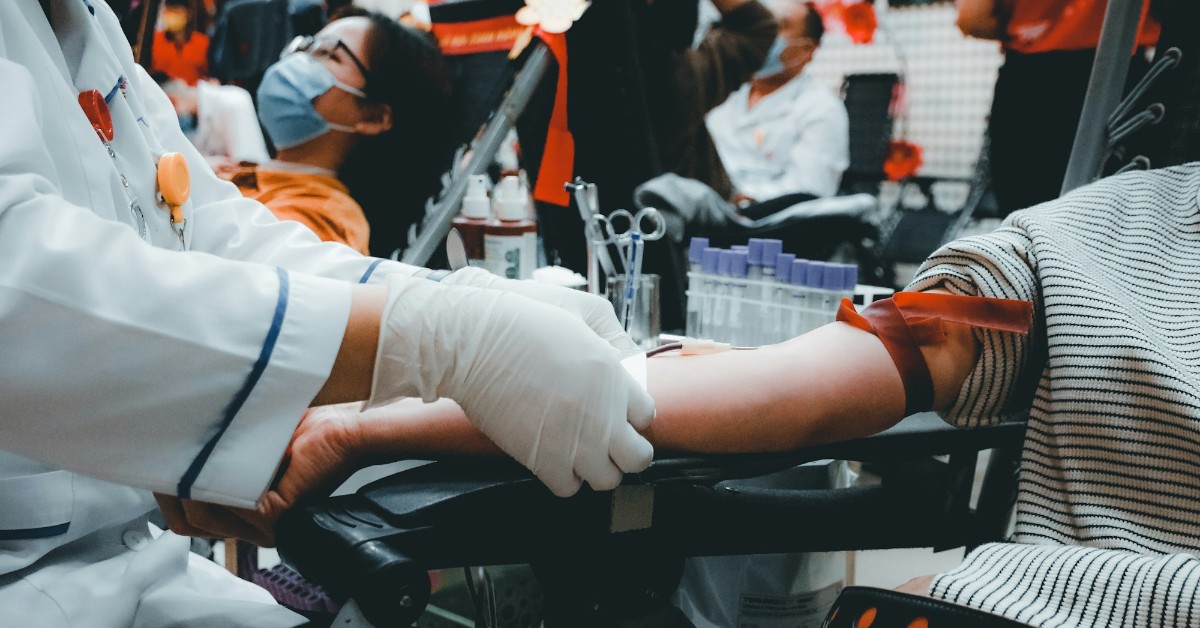
Strategies to Advance Your Phlebotomy Technician Career
Phlebotomy is an important component of today’s healthcare as it involves collecting blood samples for diagnostic, therapeutic, and research purposes. As a phlebotomy technician, you play a crucial role in patient care and medical diagnostics. However, like any career, there are always opportunities for growth and advancement.
In this blog post, our team at the Westchester School for Medical and Dental Assistants explore various strategies to help you take your phlebotomy career to the next level.
Understanding the Role of a Phlebotomy Specialist
It’s essential to understand the scope of a phlebotomy specialist’s responsibilities before going into advancement opportunities. Phlebotomy specialists are tasked with more than just drawing blood. They must have a complete understanding of anatomy, physiology, and medical terminology to properly identify and label samples. Effective communication with patients is also important to ensure comfort and accuracy during the blood collection process.
Phlebotomy specialists perform venipuncture, which is the process of puncturing a vein to collect blood, and must handle the samples carefully to maintain them for laboratory testing. The role requires a combination of technical skills, medical knowledge, and interpersonal abilities.
Pursuing Certification and Continuing Education
One of the most effective ways to advance your phlebotomy career is by obtaining certification. While it’s possible to begin working after completing a basic training program, many employers prefer or require certified phlebotomy technicians. Several organizations offer certification, including the Westchester School for Medical and Dental Assistants.
Not only does getting certified demonstrate your competence but it also opens doors to better job opportunities and higher salaries. To become certified, you’ll need to complete a training program and pass an exam. These programs are usually a few months long and cover essential topics such as anatomy, physiology, medical terminology, and phlebotomy techniques.
After your initial certification, there are several ways to continue your education and grow your career further. By staying up-to-date with the latest advancements in the field, you make yourself a more valuable employee. Consider attending seminars and workshops or pursuing additional certifications in specialized areas of phlebotomy, such as pediatric or geriatric care.
Specializing in Donor Phlebotomy
One rewarding career path within phlebotomy is specializing in donor phlebotomy. Donor phlebotomy technicians collect blood from volunteer donors at blood donation centers. This specialization offers several benefits:
- Job Security: Due to the constant demand for blood and blood products, there is high job security.
- Career Advancement Opportunities: There are many career advancement opportunities available, with the potential to move into supervisory or management roles.
- Flexible Schedules: Many centers operate on flexible schedules, including weekends and evenings, allowing for work-life balance.
- Competitive Salaries: Competitive salaries are common, especially at high-volume donation centers.
To pursue this specialization, focus on gaining experience in blood donation settings and consider getting a specific certification related to donor phlebotomy.
Exploring Geographic Opportunities
If you’re open to relocation, moving to a different part of the country can positively impact your career path and earning potential. Salaries for phlebotomy technicians vary widely by state and region. Some areas may have a higher demand for these professionals, which leads to better compensation.
Research local job markets and wage trends in different states or regions. Consider factors such as cost of living, job availability, and the potential for career growth when evaluating relocation options. Moving to an area with a strong healthcare sector or a shortage of phlebotomy technicians could give you a major boost to your career.
Using Phlebotomy as a Stepping Stone
For those with long-term aspirations in healthcare, a career in phlebotomy can be an excellent foundation. The hands-on patient care experience and medical knowledge gained as a phlebotomy technician are important assets for those considering careers as physicians, nurses, or other healthcare professionals.
Working as a phlebotomist provides insights into the healthcare industry, including exposure to medical terminology, laboratory procedures, and patient care practices. This experience can be particularly beneficial when applying to medical or nursing school as it demonstrates a commitment to patient care and practical healthcare experience.
Developing Additional Skills
To stand out in the field and increase your value to employers, consider developing additional skills. When you expand your skill set, you make yourself more versatile to employers which can potentially open up new career opportunities. These might include:
- Becoming proficient with electronic health records systems.
- Learning a second language to better serve diverse patient populations.
- Developing leadership and management skills for supervisory roles.
- Gaining experience with specialized equipment or techniques used in different healthcare settings.
Networking and Professional Development
Building a professional network can be a major advantage for career advancement. Attend industry conferences, join professional associations, and connect with colleagues in various healthcare settings. These connections can lead to job opportunities, mentorship, and insights into industry trends. In addition, look for opportunities for professional development within your current workplace and express an interest in taking on extra responsibilities or learning new skills.
Contact the Westchester School for Medical and Dental Assistants to Learn More About Phlebotomy Training in NY!
If you’re in New York and looking to start or advance your career in phlebotomy, we offer comprehensive training programs at the Westchester School for Medical and Dental Assistants. Our phlebotomy course is designed to provide students with the knowledge and skills needed to excel in the field.
It includes both classroom instruction and hands-on training and covers essential topics such as anatomy, physiology, medical terminology, and phlebotomy techniques. Upon completion, graduates are prepared to sit for national certification exams and enter the workforce as skilled phlebotomy technicians.
For more information about our phlebotomy training program and how it can help you achieve your career goals, reach out to us today!